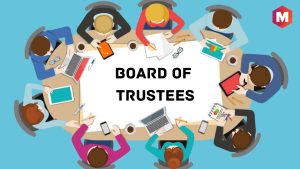The need for Trustee Meetings
The trustees are tasked to meet to carry out the body corporate’s business by taking resolutions. They are able to regulate the trustee meetings as they think fit subject to the provisions of the Sectional Titles Schemes Management Act 8 of 2011 (the “STSM Act”), the Prescribed Management Rules (the “PMRs”), and the rules of common law of meetings.
There are circumstances where it is impractical, or even impossible, for the trustees to meet physically. For example, it may be that the scheme is a resort type scheme where most of the trustees do not reside in close proximity to it. More recently, the Covid lockdown protocols have made it difficult and even impossible for physical meetings to be held. In these situations where the trustees are unable to physically meet they are able to take resolutions in other manners.
Taking resolutions in writing
PMR 14(4) allows trustees to adopt decisions by resolutions which may be put to the vote and adopted by majority vote either:
- At trustee meetings; or
- In writing.
Where trustees decide to take a decision by written resolution they must send notice to each trustee which contains the text of the proposed resolution(s) and instructs the trustees to indicate their agreement to the resolution by signing the written resolution. The signatures must be received by the body corporate before the expiry of the closing date for receiving such signatures that is specified in the notice.
Trustee meetings held remotely
In terms of PMR 11(5) the trustees may make arrangements for the attendance of a trustee meeting to be done telephonically or by any other method on condition that the method:
- Is accessible to all the trustees and other persons entitled to attend the meeting.
- Permits all the persons participating to communicate with each other during the meeting.
- Permits the chairperson to confirm with reasonable certainty the identity of all the participants.
PMR 11(1)(b) specifically requires that notice of such trustee meetings must be given to all trustees, even those that are not present in the country. A person that attends a meeting as provided by this provision is considered to be present at the meeting held remotely. This is a beneficial procedure for taking trustee resolutions in circumstances where the trustees are not in close proximity to each other and in situations where one or some of the trustees are absent from the country.
Conclusion
These two procedures that are provided in the PMRs for the taking of trustee decisions without physically meeting assists the body corporate in ensuring that the trustees continue to execute the powers and duties delegated to them by the body corporate notwithstanding any practical difficulties in actually meeting.













